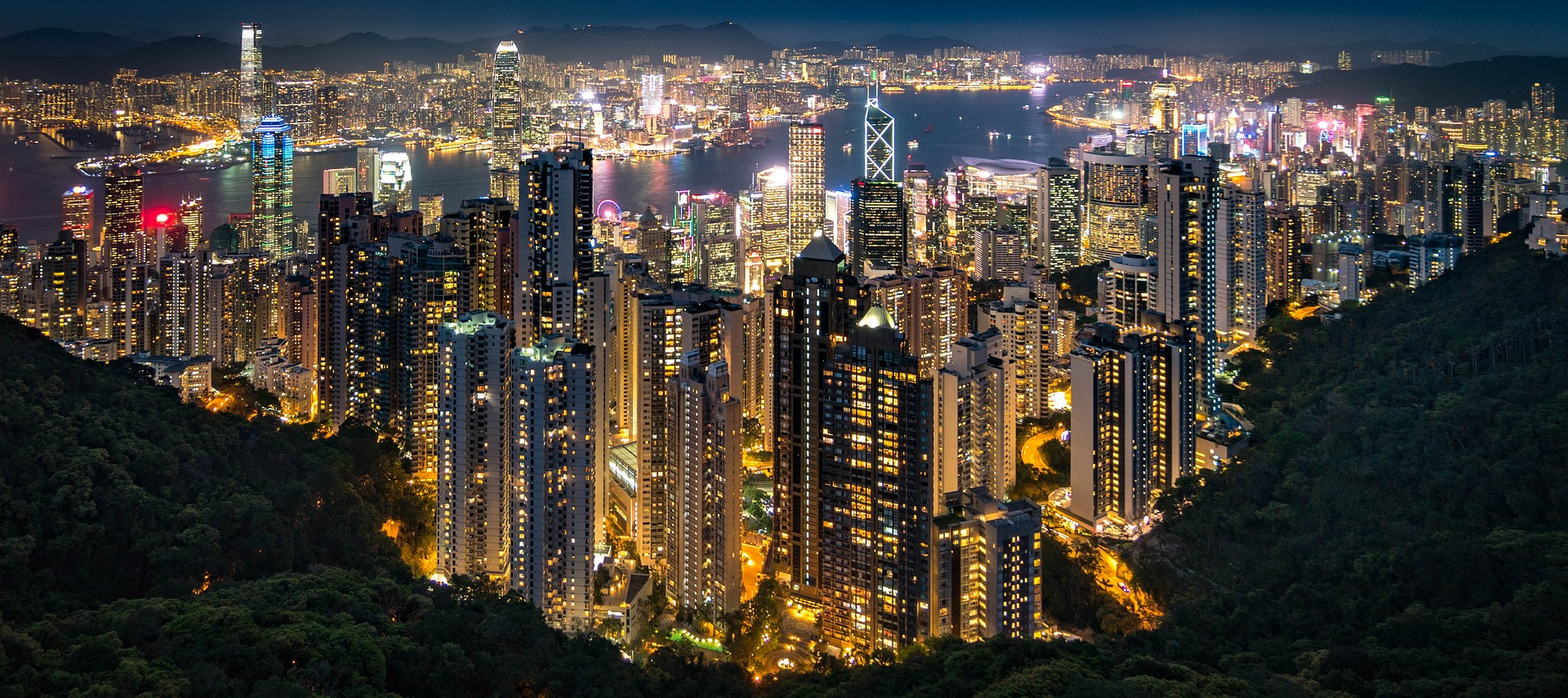What Does China’s Crackdown on Freedom Mean for the World?

This week, China’s crackdown on political freedom in Hong Kong continued with several high profile arrests under the new National Security Law for Hong Kong (NSL HK), including pro-democracy media tycoon Jimmy Lai. With the addition of a draft Data Security Law (DSL) explicitly regulating activities of anyone, anywhere in the globe, the Chinese Communist Party (CPP) has codified its “wolf warrior” approach to engaging the international community and poses significant risks to freedom of speech and association globally.
As the impact of Beijing’s aggressive strategy to rein in dissent starts to take shape, here are some of the key developments we’re seeing emerge – and their global implications.
What is the National Security Law for Hong Kong?
The NSL HK establishes punishments for offenses of secession, subversion, terrorist activities and colluding with foreign forces. Enacted by China’s National People’s Congress, rather than Hong Kong’s Legislative Council, the law was passed on June 30 and came into force the same day. The substance of the law has been met with global criticism, for its overly broad and vague provisions and explicit extraterritorial effect.
What is the Data Security Law?
The DSL establishes rules related to data collection, transfer, and handling, with a focus on national security in the People’s Republic of China (PRC). It is the latest piece of the CCP’s digital governance regime, which includes other controversial legislation such as the Cybersecurity Law (2016), Cryptography Law (2019) and regulations such as those governing online streaming.
How are the Laws Changing Life in Hong Kong?
Less than a month after the NSL HK came into effect, we are already seeing an expansive chilling effect. Article 38 of the NSL HK, which criminalizes offenses as vague as inspiring hatred of the PRC, can be applied to any person for any offense, no matter where in the world it is conducted. This is already making academics and journalists wary of working in Hong Kong or the PRC. While some reporters have been forced to leave Hong Kong, others are struggling to find locals willing to speak either on or off the record.
The draft DSL, introduced at the same time the NSL HK took effect, has received comparatively less attention, but also contains explicitly extraterritorial powers. Like the NSL HK, the draft DSL authorizes Chinese officials to investigate and control activities anywhere that may threaten the PRC. When one considers the immediate chilling effect the NSL HK has had on political candidates, activists, NGOs, academics and reporters, one can only imagine the effect that further aggressive efforts to control online activities under the DSL might have.
The explicit nature of the extraterritorial aspect of these laws is perhaps the most alarming element in both directives. Until now, PRC laws targeted offenses committed within the PRC or those that had a a direct impact in the PRC. For example, under the Cybersecurity Law and Cryptography Law, data must enter the PRC for officials to claim jurisdiction. Similarly, government bans on livestreaming content showing foreigners target content viewed in the PRC.
This shift to explicitly control activities outside the PRC is unsurprising considering the CCP’s efforts to characterize foreigners as national security threats and extrajudicial means to attack critics outside its borders. This includes detaining former diplomats and imposing exit bans on foreigners connected to persons of interest in the PRC as well as kidnapping foreign publishers and intimidating activists and students abroad. It also includes “sanctioning” US citizens, including IRI President Dan Twining and board members Senator Marco Rubio and Tom Cotton, without any legal basis.
What’s are the Global Implications?
What does this all mean? First and foremost, we can expect this aggressive approach to foreign actors both within and outside of the PRC to continue. As with any codification of extrajudicial measures, this is likely to embolden officials to act on the edges and beyond the scope of enumerated authorities. The fact that Chinese officials have encouraged critics of the PRC to commit suicide demonstrates the depths to which the CCP will sink. The unfair practices foreign companies have experienced in China will likely only worsen as the CCP seeks to shore up the domestic economy – this is an existential priority for government as a strong economy is the basis of its legitimacy.
Second, freedom of expression and association globally are under attack by the CCP, which has few qualms attacking perceived critics no matter who or where they are. Critics who live in a country heavily influenced by the PRC could be at serious risk of extradition to the PRC – Thailand is an example. Furthermore, authoritarians around the world who have been quick to capitalize on chaos or mimic repressive laws to buttress their own powers may be emboldened by the PRC’s success with these laws to extend their own repressive measures.
The NSL HK and draft DSL are not just about China or Hong Kong – they are intended to put the entire world on notice that criticism of the CCP will not be tolerated. In keeping with our mission to protect and advance political freedom worldwide, IRI will continue to highlight the CCP’s malign actions and will continue to help activists around the world counter authoritarian influence and advocate for citizen-centered governance. No one can afford to sit out this fight for essential liberties any longer.
Top